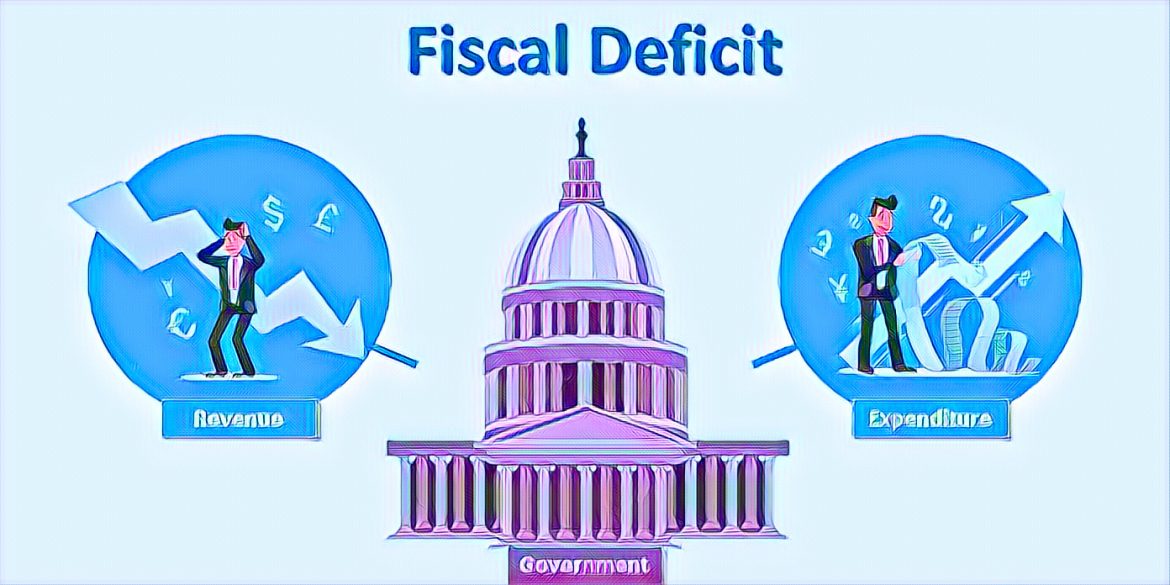Nigeria’s federal government is facing criticism over its growing fiscal deficit, which has raised alarm bells about what some are calling “squandermania governance.” With the deficit reaching record levels, critics are accusing the government of mismanaging public funds and failing to prioritize the nation’s economic stability.
According to recent reports, Nigeria’s fiscal deficit has ballooned due to a combination of high spending and low revenue generation. The government has been borrowing heavily to finance its budget, leading to concerns about the country’s increasing debt burden. Economists warn that this approach is unsustainable and could have serious long-term consequences for Nigeria’s economy.
A key point of contention is the government’s allocation of funds. Critics argue that significant amounts of money are being spent on non-essential projects and lavish expenditures, rather than on critical sectors like healthcare, education, and infrastructure. This perceived misallocation has led to accusations of “squandermania,” a term used to describe reckless and wasteful spending.
“This government is not prioritizing the needs of the people,” says financial analyst Uche Okeke. “Instead of investing in projects that would have a lasting impact on the economy, they are spending on unnecessary ventures and extravagant lifestyles. This is not how a responsible government should manage public funds.”
The fiscal deficit issue is further complicated by Nigeria’s ongoing struggle with corruption and financial mismanagement. Transparency International’s latest Corruption Perceptions Index ranks Nigeria among the most corrupt countries in the world, highlighting the challenges the government faces in maintaining fiscal discipline and accountability. Many believe that addressing these systemic issues is essential for Nigeria to achieve sustainable economic growth.
In response to these criticisms, the Nigerian government has defended its spending decisions, arguing that the funds are being used to stimulate economic growth and improve the standard of living for Nigerians. Officials point to various infrastructure projects, social programs, and efforts to diversify the economy as evidence of their commitment to development. “We are working hard to build a stronger economy for the future,” a government spokesperson said. “Our investments are aimed at creating jobs, reducing poverty, and improving the quality of life for all Nigerians.”
However, many experts remain skeptical. They argue that without greater transparency and accountability, the government’s fiscal policies will continue to be ineffective and contribute to economic instability. “The lack of clear oversight and accountability is a major problem,” says Okeke. “We need to see more transparency in how public funds are being used, and we need to ensure that those responsible for financial mismanagement are held accountable.”
As Nigeria grapples with these fiscal challenges, there is growing concern about the impact on the average citizen. With inflation rising and unemployment remaining high, many Nigerians are struggling to make ends meet. The fiscal deficit and the government’s spending practices have become a flashpoint for public frustration, with calls for greater fiscal responsibility and governance reform.
Civil society organizations and advocacy groups are urging the government to take immediate action to address the fiscal deficit and improve financial management. They are calling for a comprehensive review of government spending, stronger anti-corruption measures, and more inclusive economic policies that prioritize the needs of ordinary Nigerians. “We cannot afford to continue down this path,” says Bola Tinubu, a member of a prominent advocacy group. “The government needs to listen to the people and make the necessary changes to ensure a more equitable and sustainable future for all.”
Despite the challenges, there is hope that Nigeria can overcome its fiscal difficulties with the right policies and leadership. By addressing corruption, improving transparency, and focusing on sustainable development, the government has the opportunity to build a more resilient economy and improve the lives of its citizens.
Source: BusinessDay Nigeria


